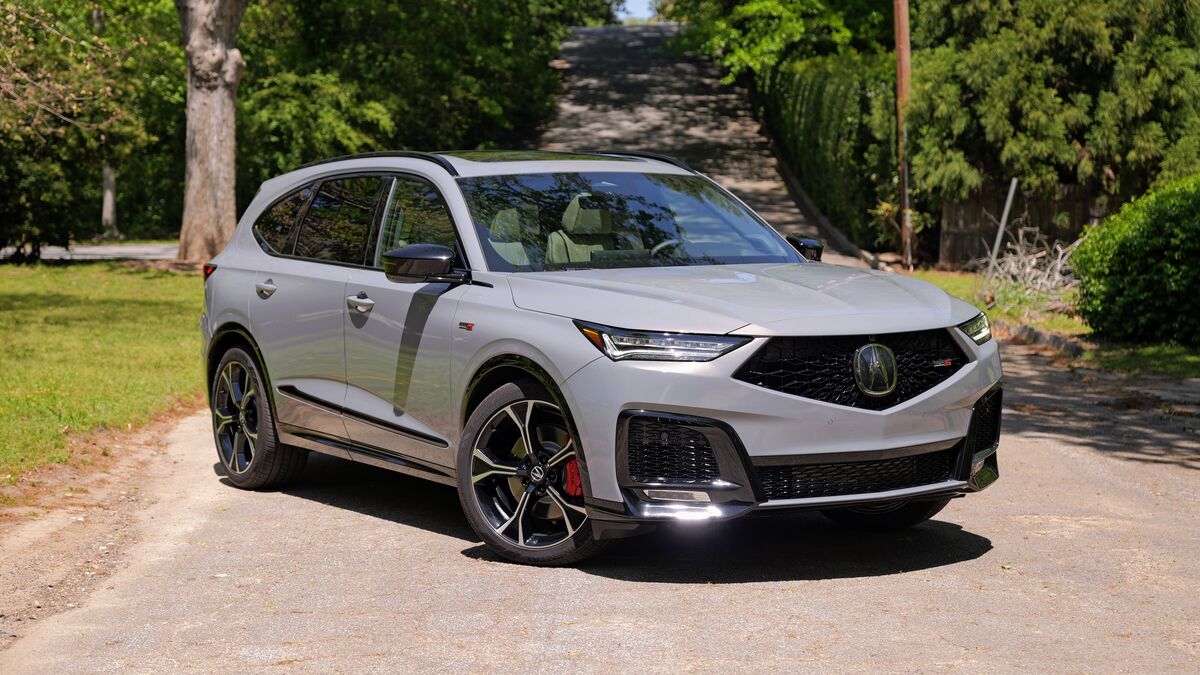Tariffs dominate the news for car shoppers, but a trade war has many fronts. The U.S. and China have each made strategic moves in their burgeoning trade war that have nothing to do with tariffs but could interrupt your car shopping.
The New York Times reports, “Last week, Ford Motor temporarily closed a factory in Chicago that makes Ford Explorer sport utility vehicles after one of its suppliers ran out of” small magnets that originate in China. The factory has since restarted, the Times explains.
Related: How Each Automaker is Responding to Tariffs
We’ve contacted Ford to confirm, and we will update this story when we hear more.
Inventory a Little Tight
If you’re in the market for a new Explorer, your local dealership may still be able to find the combination of colors and features you want. Car dealerships maintain a stockpile of popular models.
But Ford dealers have fewer Explorers in inventory than they’d like to. An old industry rule of thumb tells them to keep about a 60-day supply of each car in stock, with another 15 days on order or in transit. At that level, they’ll likely have the specific model you want in easy reach.
Fewer can cost them sales, as they might not have one that meets your needs. More costs them money — dealers generally make payments on their cars on their lot. An unsold car is a snowballing expense.
Kelley Blue Book’s parent company, Cox Automotive, also owns companies that provide many of the tools dealers use to manage their inventory. So, the company has easy insight into the supply of each car. Cox Automotive data show that Ford dealers opened May with 48 days’ worth of Explorer SUVs in stock — less than ideal, but not enough to qualify as a shortage.
Ironically, Ford also builds the Explorer in China, though the company does not currently sell Chinese-built Explorers in the U.S. It sells just one Chinese-built vehicle stateside – the Lincoln Nautilus luxury SUV.
Why Magnets?
Powerful magnets made from rare-earth materials have become a new flash point in the growing economic conflict between the U.S. and China.
The Times explains, “On May 12, the countries announced after weekend meetings in Geneva that they would suspend most of their recently imposed tariffs.” The suspension did not relieve levies on new cars and car parts.
“Since then, however, both governments have shown that they are still prepared to wield controls over critical exports as weapons against one another.”
The U.S. stopped exporting some semiconductors that China needs for aircraft manufacturing and other industries. China, meanwhile, “has restricted its exports of rare earth magnets, which are crucial for cars, semiconductors, aircraft, and many other applications. Close to 90% of the world’s rare earth metals, including magnets, are produced in China.”
Small electric motors in brake and steering systems, power seats, and other components use the magnets.
Ford has already resumed manufacturing the Explorer. Companies routinely plan pauses for factory maintenance. Ford merely moved a planned shutdown week forward until its supplier could resume shipments, the Times reports.
However, the story illustrates how sensitive the auto industry is to tiny supply chain disruptions. Many car factories operate on a just-in-time model where components are often used the day they arrive. A delayed shipment of tiny electric motors can shut down production of thousands of vehicles.
Related: Honda Factory Shows Complexity of Car Tariffs








